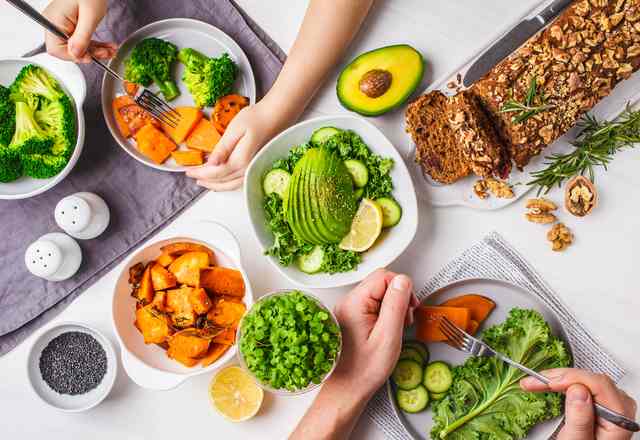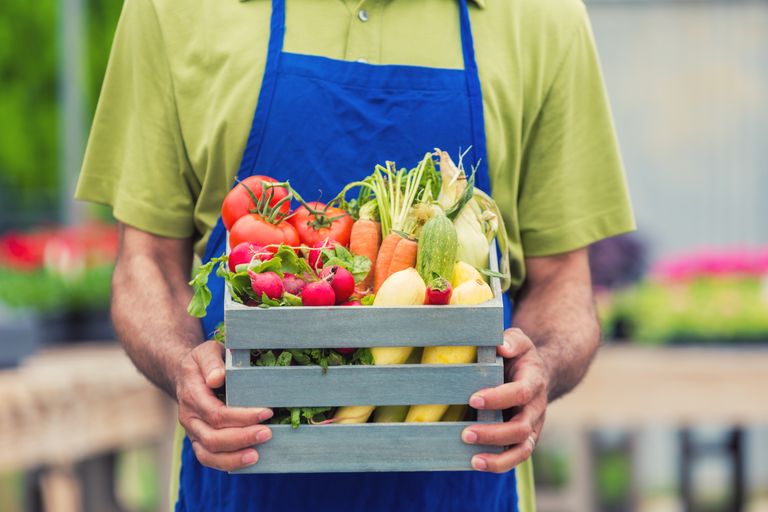As a vegetarian, it is important to ensure that you are getting all the necessary nutrients from your diet. While it is possible to meet your nutritional needs on a vegetarian diet, it is essential to focus on consuming a variety of foods to ensure you are getting all the essential vitamins, minerals, and protein. In this article, we will explore some of the most useful foods for vegetarians that can help you maintain a balanced and nutritious diet.
1. Legumes
Legumes, such as lentils, chickpeas, and beans, are excellent sources of protein, fiber, and essential minerals like iron and zinc. They are versatile and can be used in a variety of dishes, including soups, stews, salads, and even burgers. Legumes are not only nutritious but also budget-friendly, making them a staple in vegetarian diets.
- Lentils: Lentils are rich in protein and fiber, making them a great choice for vegetarians. They are also a good source of iron, folate, and potassium.
- Chickpeas: Chickpeas, also known as garbanzo beans, are packed with protein, fiber, and essential minerals. They can be used to make hummus, salads, or even roasted for a crunchy snack.
- Beans: Beans, such as black beans, kidney beans, and pinto beans, are high in protein, fiber, and antioxidants. They can be used in various dishes like chili, burritos, and salads.

2. Whole Grains
Whole grains are an important part of a vegetarian diet as they provide essential nutrients like fiber, B vitamins, and minerals. They also help in maintaining a healthy weight and reducing the risk of chronic diseases. Some of the best whole grains for vegetarians include:
- Quinoa: Quinoa is a complete protein source and is rich in fiber, iron, and magnesium. It can be used as a base for salads, stir-fries, or as a side dish.
- Brown Rice: Brown rice is a nutritious alternative to white rice. It is high in fiber, B vitamins, and minerals like selenium and manganese. It can be served with stir-fries, curries, or used in rice bowls.
- Oats: Oats are a great source of soluble fiber and can help in reducing cholesterol levels. They can be enjoyed as oatmeal, added to smoothies, or used in baking.

3. Nuts and Seeds
Nuts and seeds are not only delicious but also packed with essential nutrients like healthy fats, protein, fiber, and minerals. They can be enjoyed as a snack or added to various dishes for extra flavor and nutrition.
- Almonds: Almonds are a good source of protein, healthy fats, vitamin E, and magnesium. They can be eaten as a snack, added to salads, or used in baking.
- Chia Seeds: Chia seeds are rich in omega-3 fatty acids, fiber, and antioxidants. They can be added to smoothies, yogurt, or used as an egg substitute in baking.
- Flaxseeds: Flaxseeds are high in omega-3 fatty acids, fiber, and lignans. They can be ground and added to smoothies, oatmeal, or used as an egg substitute in baking.
4. Leafy Greens
Leafy greens are a powerhouse of nutrients and should be a regular part of any vegetarian diet. They are rich in vitamins, minerals, antioxidants, and fiber. Some of the best leafy greens for vegetarians include:
- Spinach: Spinach is packed with iron, calcium, vitamins A and C, and folate. It can be used in salads, stir-fries, or added to smoothies.
- Kale: Kale is a nutrient-dense green that is rich in vitamins A, C, and K, as well as calcium and iron. It can be used in salads, sautéed as a side dish, or added to smoothies.
- Swiss Chard: Swiss chard is a leafy green that is high in vitamins A, C, and K, as well as magnesium and potassium. It can be used in stir-fries, soups, or sautéed as a side dish.
5. Dairy Alternatives
For vegetarians who include dairy in their diet, there are several dairy alternatives available that can provide similar nutrients withoutthe use of animal products. These alternatives are often made from plant-based sources and can be used in a variety of dishes.
- Soy Milk: Soy milk is a popular dairy alternative that is high in protein and fortified with essential vitamins and minerals. It can be used in smoothies, cereal, or as a substitute for milk in baking.
- Almond Milk: Almond milk is made from ground almonds and is a good source of vitamin E and healthy fats. It can be used in coffee, cereal, or as a base for smoothies.
- Coconut Milk: Coconut milk is a creamy and flavorful alternative to dairy milk. It is rich in healthy fats and can be used in curries, soups, or desserts.

Conclusion
In conclusion, a well-planned vegetarian diet can provide all the necessary nutrients for a healthy lifestyle. By incorporating a variety of plant-based foods like legumes, whole grains, nuts, seeds, leafy greens, and dairy alternatives, vegetarians can enjoy a balanced and nutritious diet. Remember to experiment with different recipes and flavors to keep your meals exciting and enjoyable.

Frequently Asked Questions (FAQ)
1. Can vegetarians get enough protein without eating meat?
2. How can vegetarians ensure they are getting enough iron in their diet?3. What are some good sources of omega-3 fatty acids for vegetarians?4. Are there any vegetarian sources of calcium?5. Can vegetarians meet their vitamin B12 needs without animal products?
Vitamin B12 is primarily found in animal products, so vegetarians may need to supplement with vitamin B12 or consume fortified foods like plant-based milk alternatives, breakfast cereals, or nutritional yeast to ensure adequate intake.کدکوتاه






